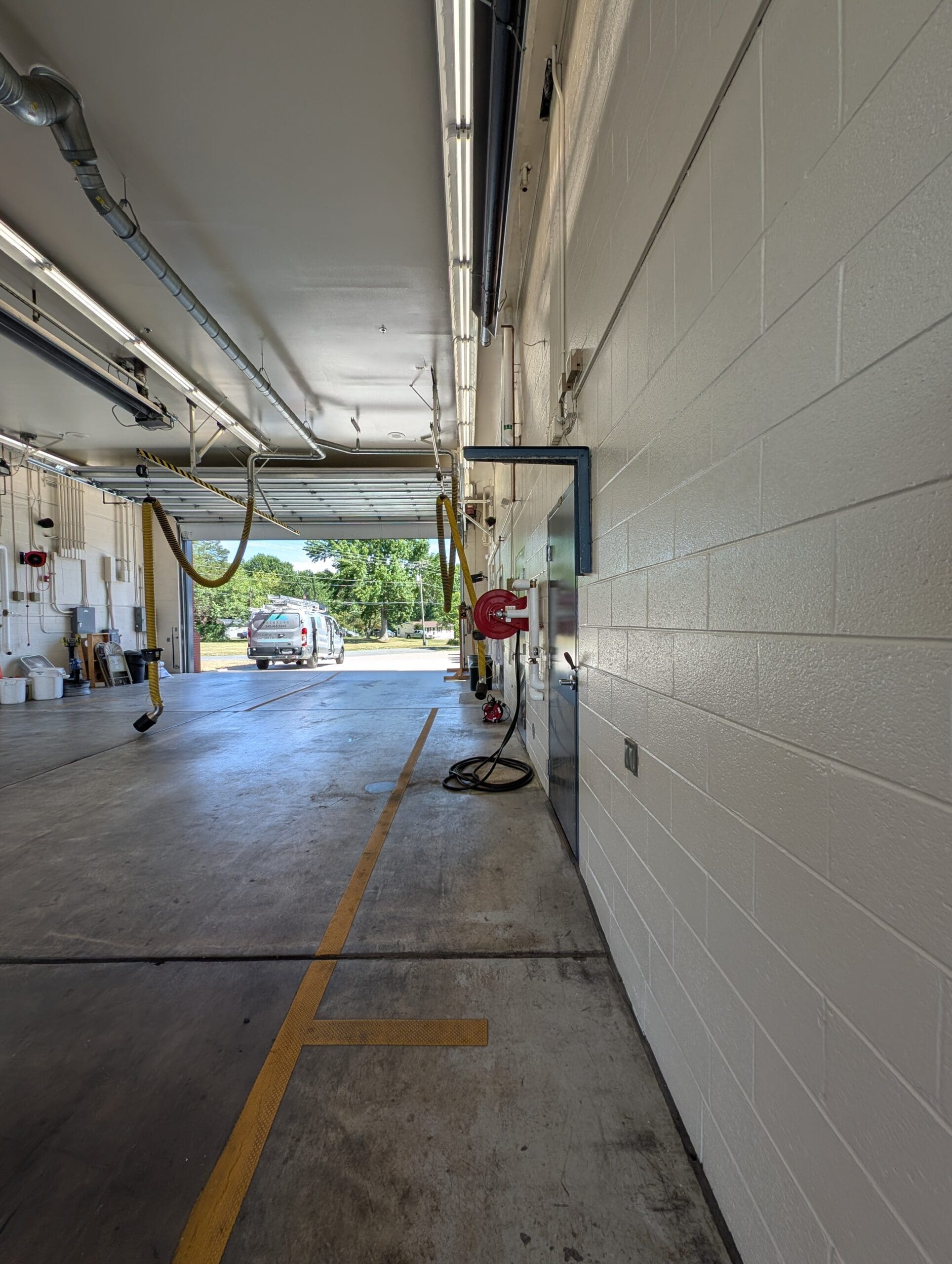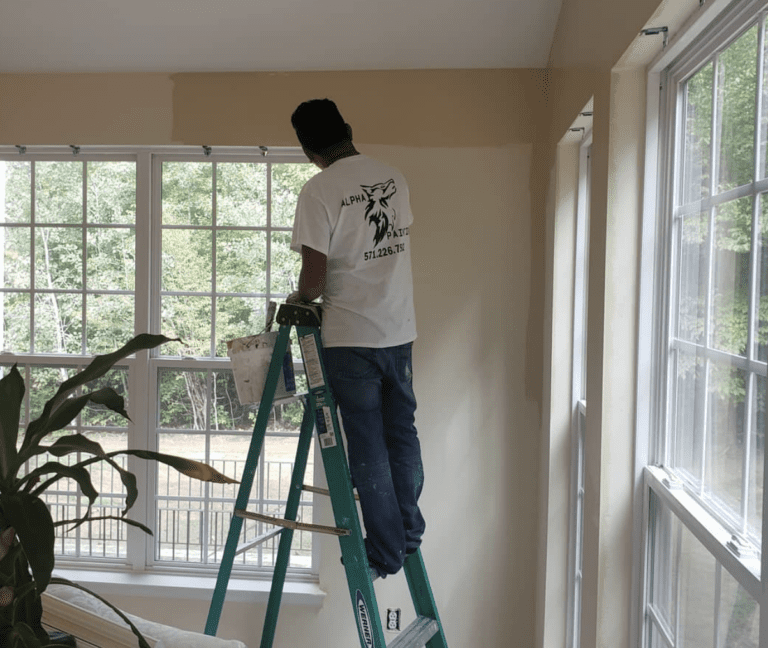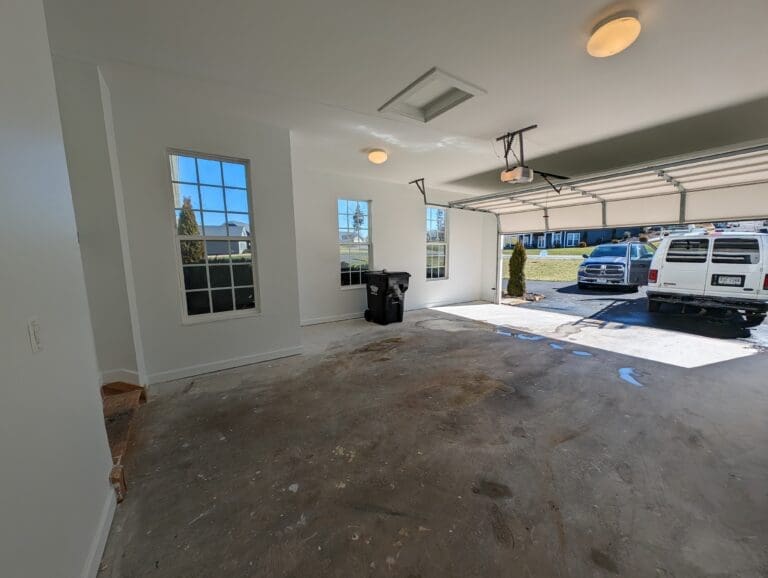Commercial Painting Projects: What Businesses in Fredericksburg Should Know Before Hiring
Refreshing or completely repainting a commercial property is a major undertaking. Business owners in Fredericksburg who are planning a painting project often discover that the process involves much more than picking out colors and finding someone with a brush. The way a building looks directly impacts how customers perceive the business, how employees feel about their workspace, and even how well the property withstands wear and tear. Choosing the right contractor and understanding the project’s demands can save money, time, and headaches. Companies like Alpha Painting LLC, which specializes in commercial and residential painting in Fredericksburg, know how much is at stake when a business owner invests in painting services.
Table of Contents
The Difference Between Residential and Commercial Painting
A commercial project is rarely the same as a residential one. The scale alone sets it apart. While a homeowner may be concerned with one living room wall or a single-story exterior, a business owner may be responsible for several floors, vast open interiors, or even industrial facilities. This requires not only a larger crew but also specialized equipment such as scaffolding, lifts, sprayers, and industrial-grade tools.
Scheduling is another major difference. Residential projects can often pause or extend without serious consequences, but a commercial property often must continue operating during the project. Contractors must plan carefully to minimize disruptions, sometimes working during evenings or weekends to accommodate the business’s needs. These considerations make choosing an experienced commercial painter essential.
Planning and Budgeting Properly
The success of a project often depends on the preparation stage. Businesses should begin by setting clear expectations about scope, timeline, and budget. A professional painting company will provide a detailed estimate that outlines labor, materials, surface preparation, and any additional services such as repairs or coatings.
Budgeting should go beyond just the upfront cost. A lower price may look appealing, but if the contractor uses inferior paints or skips important steps in preparation, the finish will fail sooner, leading to higher long-term expenses. Asking about warranties, paint brands, and application methods gives business owners a clearer picture of the value they’re receiving.
Safety and Compliance Considerations
Commercial painting often involves strict safety standards. Whether it’s dealing with high ceilings, exterior walls several stories up, or areas with heavy foot traffic, contractors must follow OSHA regulations and local Fredericksburg requirements. Businesses should ask contractors about their safety protocols, training, and insurance coverage before any work begins.
Environmental regulations can also come into play. Many commercial properties today request low-VOC or zero-VOC paints to improve indoor air quality, especially in offices, schools, and healthcare facilities. A professional painting contractor will be familiar with these products and able to recommend the best solutions without compromising durability.
Surface Preparation: The Step Too Many Skip
One of the most overlooked elements of a commercial painting project is surface preparation. Paint will not adhere properly if surfaces are dirty, damaged, or improperly primed. Businesses should expect professional painters to clean, patch, sand, and prime before applying new coats. On exterior projects, pressure washing, caulking, and repairing cracks in stucco or siding may be required.
Skipping or rushing through preparation can cut the lifespan of the paint job in half. A well-prepared surface, on the other hand, can extend the finish for years, which is particularly important for businesses that want to avoid frequent disruptions and costs.
Choosing the Right Paint for the Job
Not every paint is created equal. A commercial property may require coatings that resist heavy wear, protect against moisture, or stand up to sunlight exposure. Interior paints for offices or retail spaces should have a balance of aesthetics and durability, while industrial environments may require epoxy coatings or specialty finishes designed to withstand chemicals and abrasion.

Business owners should ask contractors why they recommend a particular product and whether it is designed for the specific environment of the building. Using a high-quality product not only improves appearance but also lowers maintenance costs over time.
Managing Disruption During the Project
Few businesses can afford to close their doors entirely while a painting project is underway. That means careful planning is necessary to reduce disruption. Contractors should communicate clearly about which areas will be painted and when, allowing the business to adjust schedules and keep employees and customers safe.
Some companies opt for night work or phased approaches, tackling one section of the property at a time. Transparency and communication are vital here—business owners should feel confident that the contractor respects their need to remain operational throughout the project.
Evaluating Contractor Experience and References
Not every painting contractor has the expertise for commercial work. Before hiring, businesses should research the company’s past projects, ask for references, and confirm that the contractor has experience with properties similar in size and function. A company that has only handled residential interiors may not be prepared for the scale, safety requirements, or scheduling demands of a commercial job.
Strong references, a portfolio of completed projects, and positive reviews are good indicators of reliability. Meeting with the contractor in person to discuss expectations also gives business owners a chance to gauge professionalism and communication style.
Long-Term Maintenance and Care
A successful painting project doesn’t end with the final coat. Commercial properties benefit from a maintenance plan that includes periodic inspections and touch-ups. High-traffic areas, entrances, and exterior sections exposed to harsh weather may require extra attention to maintain their appearance.
Businesses that work with professional painters often receive guidance on how to care for surfaces after completion. Cleaning recommendations, touch-up schedules, and warranty coverage all play a role in keeping the property looking sharp for years.
Why Fredericksburg Businesses Should Take Extra Care
Fredericksburg has a unique mix of historic buildings, modern commercial developments, and industrial facilities. Painting requirements for a colonial-style storefront downtown differ significantly from those of a warehouse near the outskirts of the city. Local climate also plays a role—humid summers, cold winters, and seasonal storms can all affect paint performance.
Business owners who choose contractors familiar with Fredericksburg’s building styles and climate challenges will see better results. A local company understands which paints hold up best, how to deal with older structures, and how to complete projects while respecting the area’s regulations and architectural standards.
Final Thoughts
A commercial painting project in Fredericksburg is more than a cosmetic update. It’s a business decision that affects branding, customer impressions, employee satisfaction, and property value. Choosing the right contractor, asking the right questions, and understanding the demands of preparation, safety, and product quality ensures the investment pays off. With careful planning and an experienced team, businesses can achieve a finish that not only looks great but also performs well for years to come.






